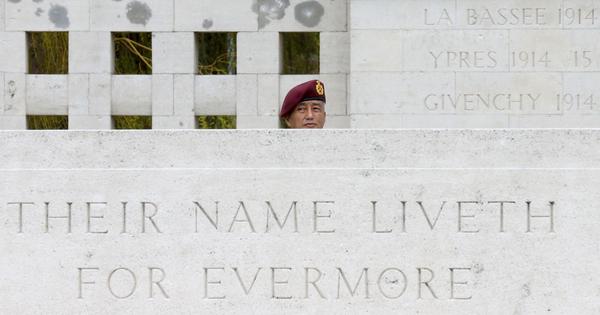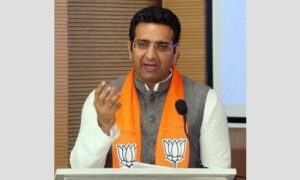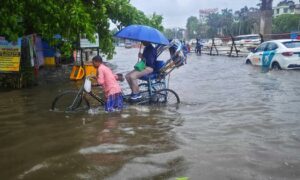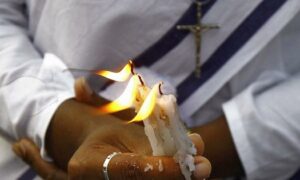
This week, the Commonwealth War Graves Commission released a landmark, peer-reviewed report: Remembering the Dead of the British Empire, a review of commemorative activity during and after World War II. The report lays bare an uncomfortable truth: that not all who died for the Allied cause were commemorated equally.
The Commonwealth War Graves Commission was established to honour the memory of those who fought and died in the two World Wars by maintaining their graves and memorials at 23,000 locations in over 150 countries. India is a member of the commission, along with the United Kingdom, Canada, Australia, New Zealand, and South Africa.
It is in the spirit of openness and accountability that the commission approached the World War II report, acknowledging both the realities of the past we should confront, and the important work being carried out by the commission to put this right.
This report continues the commission’s wider commitment – first made in April 2021 – to fully investigate potential omissions in the commemoration of fallen soldiers from the former British Empire who died in World War I, especially in Africa, India and the Middle East.
Since that report, an extensive programme, now in its fifth year, to correct, where possible, the errors of the past have seen major progress. From a new memorial formally dedicated in Cape Town earlier this year to the discovery of thousands of names of previously unrecorded war dead, plus education and community engagement programmes to raise awareness of this often-overlooked aspect of our shared history, the Commonwealth War Graves Commission is committed to commemorating all equally, and to keep their memory and stories alive.
Drawing on extensive global archival research, this new report finds that while no groups were systematically excluded after the World War II, the Imperial War Graves Commission, operating within the British Imperial system at that time, did not ensure equal outcomes for all.
The Chhatri Memorial, South Downs (nr Brighton) where 53 Sikh and Hindu soldiers who died in the UK during WW1 were cremated #LestWeForget pic.twitter.com/t6xXoOfsNW
— Jay Singh-Sohal OBE VR (@JSinghSohal) June 11, 2017
Commonwealth War Graves Commission historians discovered that the remains of potentially 7,500 African servicemen were left in temporary or battlefield graves, rather than being laid to rest in permanent cemeteries. This decision was influenced by advice from colonial administrators, who cited religious and cultural objections to exhumation (moving remains), and the Imperial War Graves Commission’s desire to limit the number of battlefield cemeteries to ensure future care. Significantly, the names of all the fallen are accurately recorded on memorials across the region.
Furthermore, up to 1,200 Muslim Indian soldiers were left in battlefield graves due to a British Indian Army ruling, again founded on perceptions of religious protocols at the time, forbidding exhumation post burial. This decision was later reversed following objections from the Imperial War Graves Commission. Additionally, at the request of the British Indian government, over 32,000 Indian army casualties were commemorated on paper scrolls instead of stone or bronze.
Investigations also discovered incomplete engagement with the families of the fallen. Unlike bereaved families in the wider Commonwealth, many of those from India and African colonies were not contacted, thus denying them the opportunity to confirm details of their loved ones or submit personal inscriptions for their headstones.
It is perhaps not surprising that the investigation concluded that records of civilians who died as a result of enemy action across the British Empire are incomplete. This is most evident in the occupied nations or those which endured significant fighting.
The commission rightfully apologises for its share of responsibility in the decisions that led to this happening after World War II, and for all those families who have felt let down because of these decisions.
As a commissioner, I welcome the commission’s openness, transparency, and commend its global programme, which will restore burial sites, reinstate headstones, update civilian rolls of honour, introduce new forms of digital learning, share stories, raise awareness, and improve records to ensure inclusive and transparent commemoration. It is essential these errors are corrected.
We should all reflect on the findings from this report. This work isn’t just about the past. It’s about the vital work the Commonwealth War Graves Commission is doing now, and in the future, to live by its unequivocal obligation to commemorate, in perpetuity, all those who died honourably serving their countries.
Author and advisor Vasuki Shastry is a Commissioner of the Commonwealth War Graves Commission.
📰 Crime Today News is proudly sponsored by DRYFRUIT & CO – A Brand by eFabby Global LLC
Design & Developed by Yes Mom Hosting






